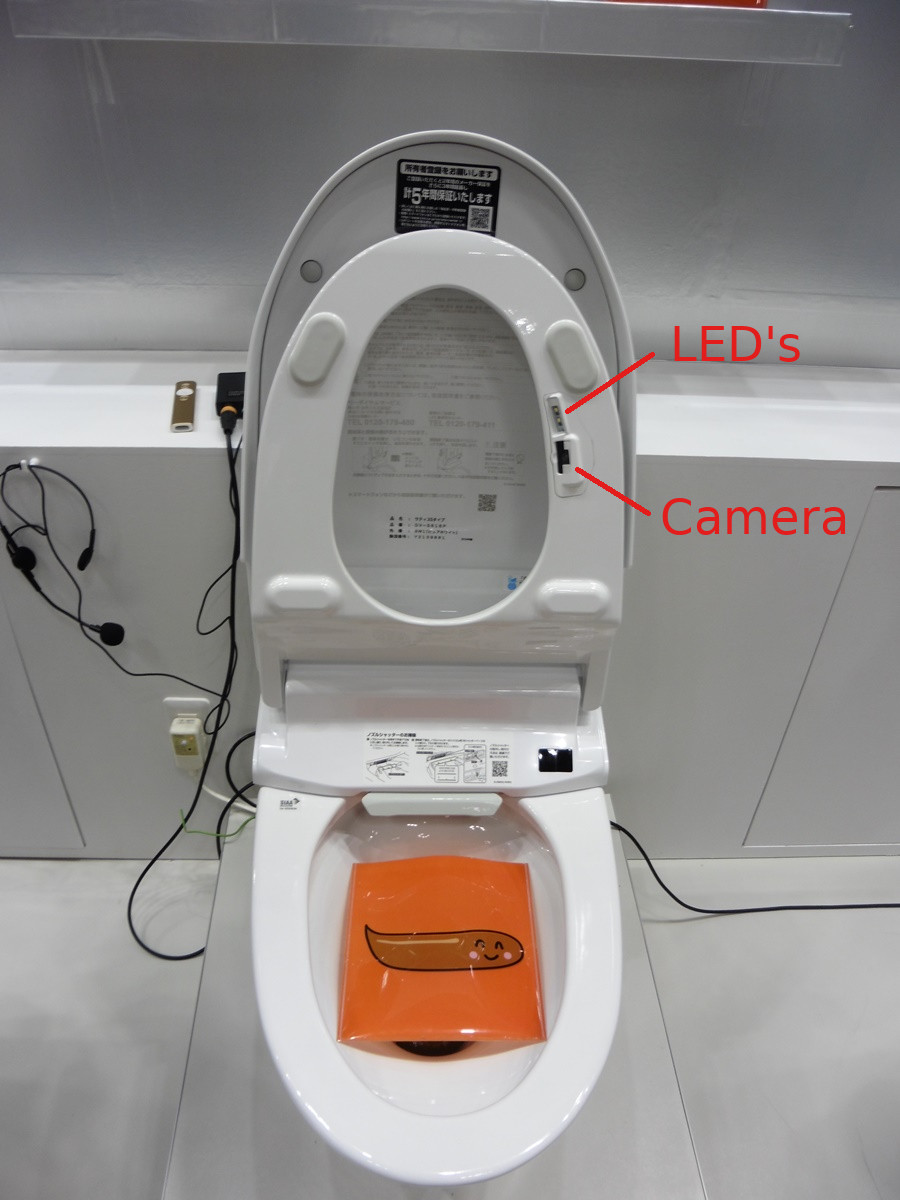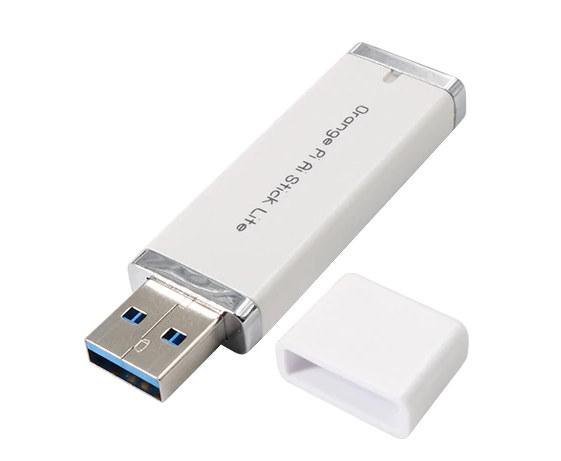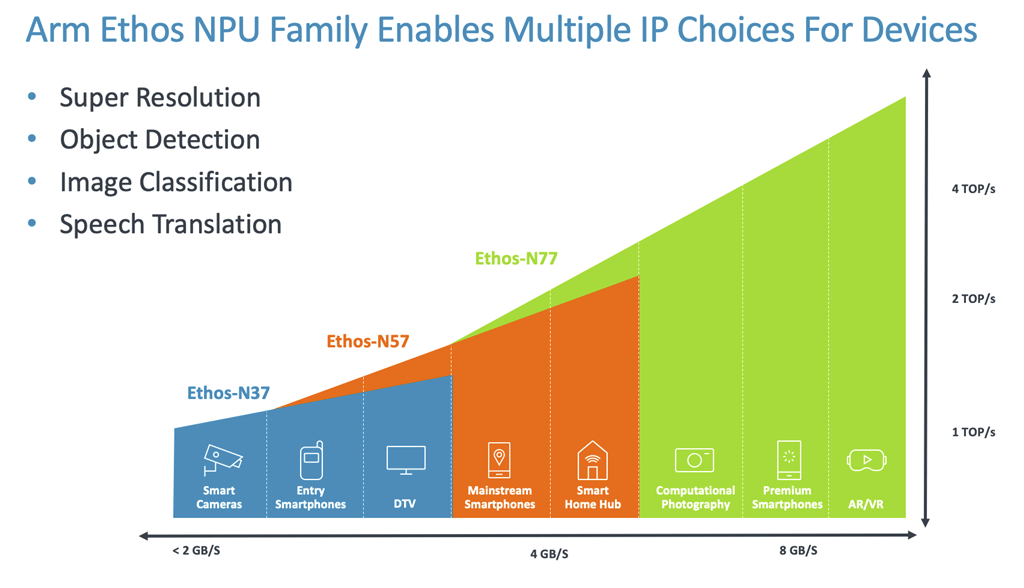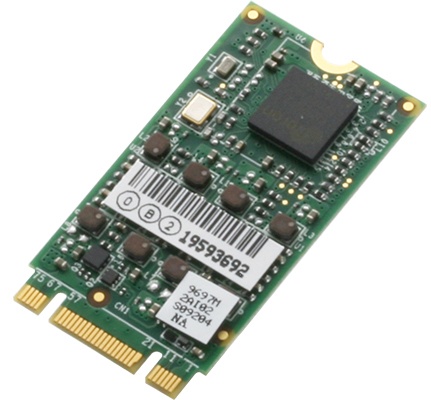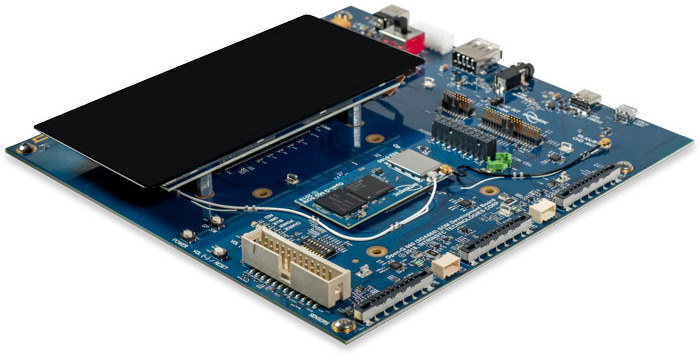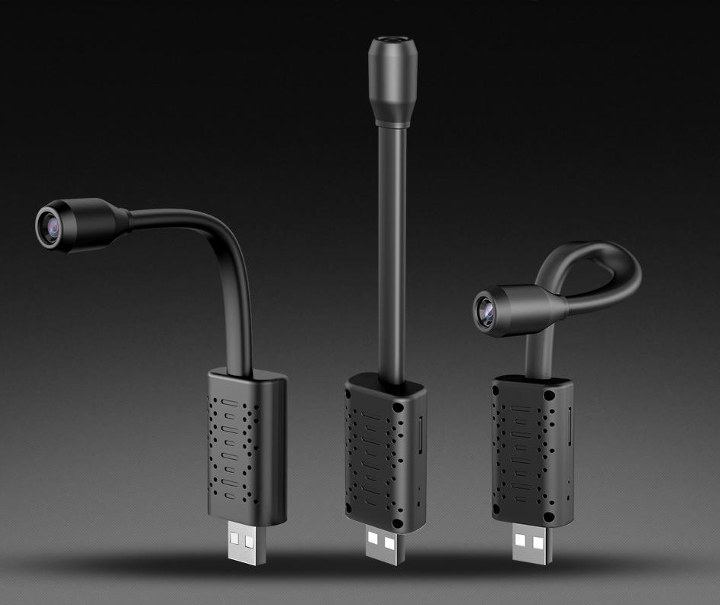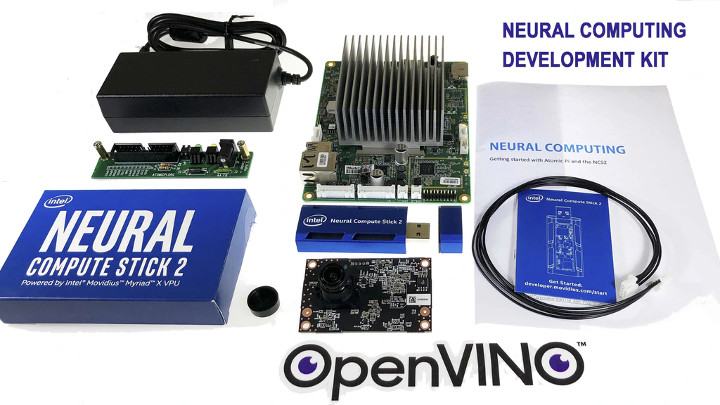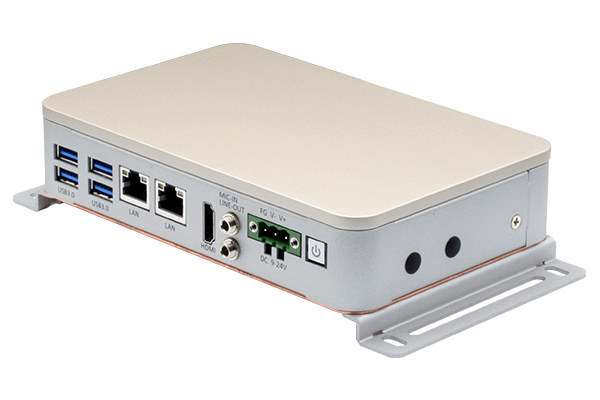Earlier this year, we wrote about machine learning & image processing in embedded systems using pasta type classification as an example. Lixil Group, a Japanese company manufacturing housing equipment, is working on a concept using similar technology, but instead of classifying pasta, they implemented the technology into an AI-based toilet that checks the shape and size of feces of people living in elderly facilities. Lixil’s toilet was unveiled at the 46th International Home Care & Rehabilitation Exhibition (HCR 2019) in Tokyo at the end of last month. The system relies on a camera and two LED’s placed on the back of the seat, which turn on when the user sits on the seat. Once the job is done, images of the feces are taken automatically and classified into seven categories as specified by the Bristol stool chart. Classification happens within a few seconds, and results can be check by staff […]
Orange Pi AI Stick Lite $20 Neural Compute Stick Ships with Free Training Tools
Shenzhen Xunlong Software launched Orange Pi AI Stick 2801 neural compute stick last year for $69. It was interesting as an alternative to Intel Neural Compute Stick. But once the documentation and SDK were released a few days later we discovered you could only run demos with the stick for that price, and the training tools would cost an extra $149. The excellent news is that the company has now launched an updated, yet similar Orange Pi AI Stick Lite for just $19.99, and best of all the PLAI training tools are now entirely free. Orange Pi AI Stick Lite specifications: ASIC – Gyrfalcon SPR2801S Lightspeeur series processor with 2-dimensional Matrix Processing Engine (MPE) with AI Processing in Memory (APiM) delivering up to 2.8TOPS @ 300mW, 5.6 TOPS @ 100 MHz (peak performance) Storage – eMMC 4.5 flash with 68 MB/s read, 84.69 MB/s write Host interface – USB 3.0/2.0 […]
Arm Introduces Ethos NPU Family, Mali-G57 GPU, and Mali-D37 Display Processor
Arm has just announced four new IP solutions with the most interesting being Ethos NPU (Neural Processing Unit) family with both Ethos-N57 and Ethos-N37 NPUs for mainstream devices, but the company also announced the new Arm Mali-G57, the first mainstream Valhall GPU, as well as Arm Mali-D37 DPU (Display Processing Unit) for full HD and 2K resolution. Arm Ethos NPU Family There are three members of the new Ethos family, and if you’ve never heard about Ethos-N77 previously, that’s because it was known as Arm ML processor. The three NPU’s cater to different AI workloads / price-point from 1 TOPS to 4 TOPS: Ethos-N37 Optimized for 1 TOP/s ML performance range 512 8×8 MAC/cycle 512KB internal memory Small footprint (<1mm2) For smart cameras, entry smartphones, DTV Ethos-N57 Optimized for 2 TOP/s ML performance range 1024 8×8 MAC/cycle 512KB internal memory For mainstream smartphones, smart home hubs Ethos-N77 Up to 4 […]
AAEON M.2 and mPCIe Cards for AIoT Acceleration Run Kneron KL520 AI SoC
The AAEON announcement of its AI Acceleration M.2 and mini-PCIe cards AAEON uses Kneron KL520 AI SoC dual Cortex-M4 on a series of new modules that are accelerating AI edge computing and that only need 0.5 Watt of power. The modules are M.2 and mini-PCIe AI acceleration cards, that offer a new way to come at AI acceleration. What AI Features are Enhanced The cards are meant to enhance and accelerate AI functions, like gesture detection, facial and object recognition, driver behavior in such AIoT areas as access control, automation, and security. History of the AAEON Development Previously AAEON has been offering the M.2 and mini-PCIe AI core modules for the Boxer computers that are based on the Intel Movidius Myriad 2 and Myriad X Vision Processing Units (VPU). Reporting was done on these previous releases in the articles on the UP AI core mini-PCIe card and the AI Core […]
Intrinsyc Unveils Open-Q 845 µSOM and Snapdragon 845 Mini-ITX Development Kit
Intrinsyc introduced the first Qualcomm Snapdragon 845 hardware development platform last year with its Open-Q 845 HDK designed for OEMs and device makers. But the company has now just announced a solution for embedded systems and Internet of Things (IoT) products with Open-Q 845 micro system-on-module (µSOM) powered by the Snapdragon 845 octa-core processor, as well as a complete development kit featuring the module and a Mini-ITX baseboard. Open-Q845 µSOM Specifications: SoC – Qualcomm Snapdragon SDA845 octa-core processor with 4x Kryo 385 Gold cores @ 2.649GHz + 4x Kryo 385 Silver low-power cores @ 1.766GHz cores, Hexagon 685 DSP, Adreno 630 GPU with OpenGL ES 3.2 + AEP (Android Extension Pack), DX next, Vulkan 2, OpenCL 2.0 full profile System Memory – 4GB or 6GB dual-channel high-speed LPDDR4X SDRAM at 1866MHz Storage – 32GB or 64GB UFS Flash Storage Connectivity Wi-Fi 5 802.11a/b/g/n/ac 2.4/5Ghz 2×2 MU-MIMO (WCN3990) with 5 GHz […]
Tiny USB WiFi Camera Supports Motion and AI Human Detection
When I first saw U21 HD camera it reminded me of SOOCOO G1 is action camera with a flexible stick, since the camera also comes with a flexible hose which allows you to orient it as you please. But it’s a different bear, as U21 is a surveillance camera powered over USB and featuring WiFi connectivity. I can’t see any motion detection, so it may have some dose of “AI” since it claims to support motion and human detection so you only get relevant alerts. It is currently sold (pre-orders) on Banggood for $33.65 including shipping with order starting to be processed on October 30th. U21 USB WIFI camera key features and specifications: MCU / WiSoC – No information (yet) Storage – MicroSD card slot up to 128GB for up to one month of recording (8GB = 2 days); Cloud storage via third party (paid) Camera – 14mm lens, HD […]
Atomic Pi x86 SBC Meets Intel Neural Compute Stick 2 in $99 Neural Computing DevKit (Crowdfunding)
IoT Team launched the $34 Atomic Pi SBC powered by an Intel Atom x5-Z8350 processor via a Kickstarter campaign last December. At the time, it only ships to the US, and looked too good to be true. But the thing is real coming from a failed robotics project, and the low-cost x86 board went back for sale via Amazon and other channels with worldwide availability last spring. The price has even gone a bit lower as you’ll find it for $32.95 on Amazon. Note that it requires some technical skills to get started and with 16GB eMMC flash it only supports Liux distributions such as Ubuntu 18.04, and installing Windows 10 is possible, but you’ll be seriously limited. Atomic Pi is back in the news, as IoT Team has now launched another Kickstarter campaign for the board, except it’s not sold standalone, but instead as part of a $99 neural […]
AAEON BOXER-8310AI Rugged Fanless Mini PC Combines Apollo Lake Processor & Myriad X VPU for AI Edge Applications
We’ve covered several of AAEON rugged mini PCs part of BOXER-8100 family powered by an NVIDIA Tegra X2 processor and targetting AI Edge applications. The company has now introduced three new AI embedded computers for the same AI edge applications but using Intel processors together with Intel/Movidius Myriad X VPU (Vision Processing Unit) for AI acceleration. The three models are BOXER-8310AI, BOXER-8320AI, and the upcoming BOXER-8330AI based on respectively Intel Celeron/Pentium Apollo Lake processor, Intel Core i3 7th gen processor, and an Intel Core i3/77 or Xeon processor. I’ll focus on the Apollo Lake model in this post to introduce AAEON BOXER-8300AI family of rugged mini PCs. BOXER-8310AI specifications: SoC (one or the other) Intel Pentium N4200 quad-core Apollo Lake processor Intel® Celeron N3350 dual-core Apollo Lake processor System Memory – 1x DDR3L SODIMM slot supporting up to 8GB RAM @ 1867 MHz Storage Device – mSATA socket AI Module […]


